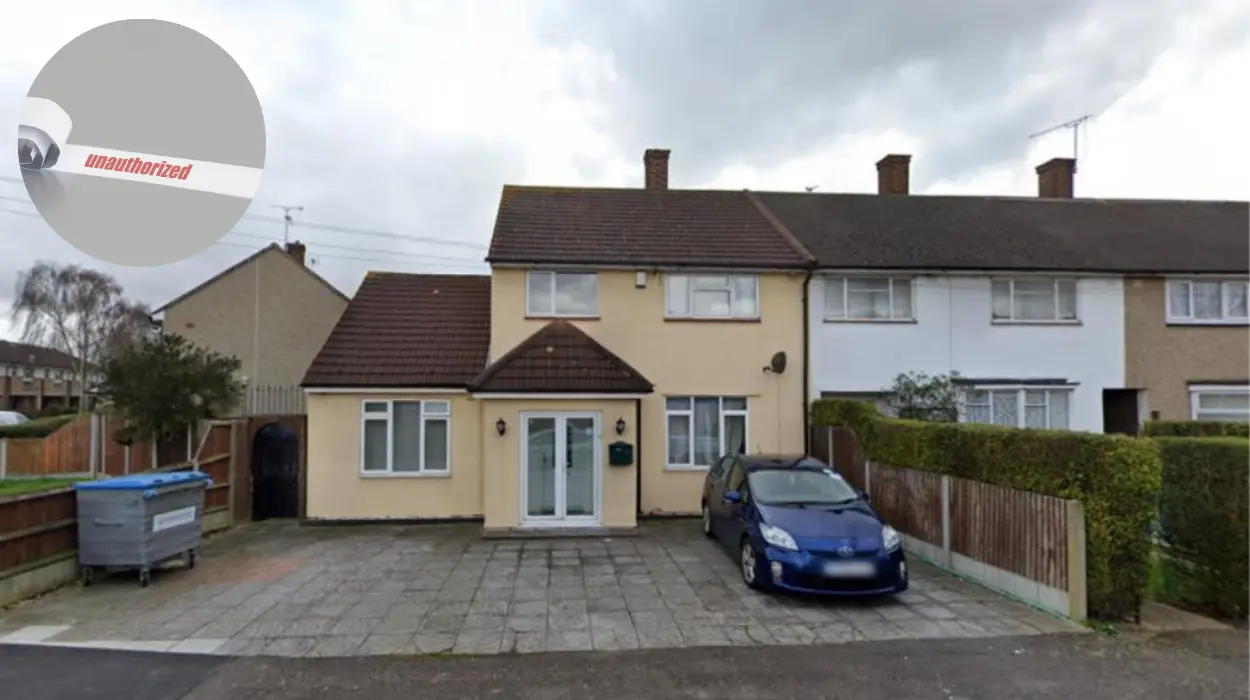Key Points:
- A property at 1 Charlbury Crescent, Romford RM3 8YR has received a planning enforcement notice from Havering Council.
- The notice alleges a breach of planning control: unauthorised use of the dwelling as a House in Multiple Occupation (HMO).
- The council claims the property was converted without planning permission, within the last ten years.
- A planning application to legalise the HMO was refused on May 12, 2024.
- The council cites noise, overuse, lack of amenities, and detrimental impact on neighbours as reasons for action.
- The notice demands that HMO use must cease, and associated waste and materials be removed.
- The enforcement notice must be complied with within three months.
- As reported by Olivia Carter of Romford Recorder, the case is part of a broader push by the council to tackle rogue landlords and protect residential neighbourhoods.
A home in Harold Hill has been served with a planning enforcement notice by Havering Council after allegations surfaced that it is being operated as an unauthorised House in Multiple Occupation (HMO), in violation of local planning regulations.
- Key Points:
- What did Havering Council find at 1 Charlbury Crescent?
- Why was the HMO proposal rejected?
- What does the enforcement notice require?
- What is an HMO and why does it require permission?
- How common are such enforcement actions in Havering and across London?
- What are the legal risks for landlords?
- Where does this leave the residents?
What did Havering Council find at 1 Charlbury Crescent?
As reported by Olivia Carter of the Romford Recorder, Havering Council issued a formal enforcement notice against 65 Charlbury Crescent (officially listed as 1 Charlbury Crescent, Romford RM3 8YR) alleging a “material change of use of a dwelling to a HMO”.
The council contends that this use occurred without the required planning permission, and within the last decade — making it a breach of planning control.
Why was the HMO proposal rejected?
According to Olivia Carter (Romford Recorder), the planning committee rejected an application to change the use of the home to a HMO on May 12, 2024.
The council’s planning refusal and subsequent enforcement notice highlight several key concerns:
- Noise and disturbance caused by increased “comings and goings” of multiple occupants.
- Lack of adequate amenities for all six residents, due to space constraints.
- Negative effect on neighbouring residents’ amenity, particularly in terms of environmental impact and quality of life.
What does the enforcement notice require?
The enforcement notice demands that the use of the property as a HMO cease immediately. It also requires that all materials and rubbish resulting from the unauthorised use be removed from the premises.
Havering Council has given the owner three months to comply.
Failure to act could result in fines, court action, or further enforcement measures under UK planning and housing laws.
What is an HMO and why does it require permission?
A House in Multiple Occupation (HMO) is defined under the Housing Act 2004 as a property rented out by at least three unrelated individuals, who share facilities such as bathrooms or kitchens.
In many London boroughs, including Havering, HMOs:
- Require planning permission for conversion from a single household use.
- Must be licensed to ensure safety standards, fire protection, and tenant welfare.
- Are monitored for overcrowding, hygiene, and structural integrity.
Operating without meeting these legal requirements is considered a criminal offence.
How common are such enforcement actions in Havering and across London?
The case reflects a broader trend across Havering and Greater London, where councils are actively enforcing against:
- Unlicensed HMOs
- Unauthorised property conversions
- Negligent landlords
As per data cited by Romford Recorder and other regional outlets, councils across London — including Croydon and Southwark — have reported hundreds of enforcement cases being opened or resolved each year.
Some boroughs have introduced Article 4 directions to remove permitted development rights and require planning approval for HMO conversions in specific neighbourhoods.
What are the legal risks for landlords?
According to UK housing enforcement guidance and sources such as Reen Anderson Solicitors:
- Enforcement notices are legally binding under planning legislation.
- Failure to comply could lead to prosecution, fines of up to £30,000, or court injunctions.
- Landlords may also face rent repayment orders if they operated an HMO without a licence.
Legal experts advise that any landlord who receives an enforcement notice should seek legal advice immediately.
Where does this leave the residents?
The enforcement notice impacts not only the landlord but also any current occupants of the HMO. If they are asked to vacate, it may place them at risk of housing insecurity.
Councils often work with housing services to ensure tenants are supported, particularly if they were unaware of the unauthorised nature of their tenancy.



